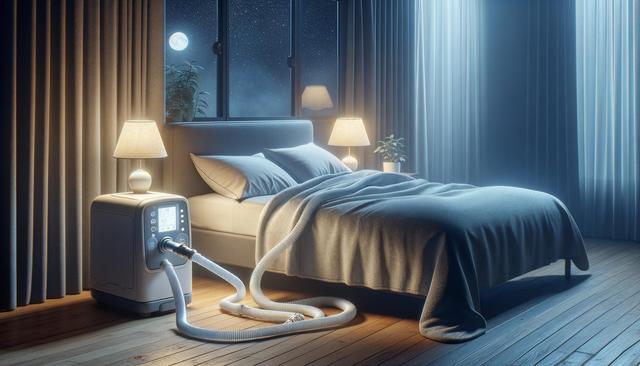What Is Sleep Apnea?
Sleep apnea is a sleep disorder characterized by repeated interruptions in breathing during sleep. These pauses can last from a few seconds to minutes and may occur multiple times throughout the night. The most common type, obstructive sleep apnea (OSA), happens when the muscles in the throat relax excessively, blocking the airway. Central sleep apnea, less common, occurs when the brain fails to send proper signals to the muscles that control breathing. Mixed sleep apnea is a combination of both types.
Common symptoms include loud snoring, gasping for air during sleep, morning headaches, daytime fatigue, and difficulty concentrating. If left untreated, sleep apnea can increase the risk of high blood pressure, heart disease, type 2 diabetes, and stroke. Early diagnosis and treatment are crucial to managing this condition effectively and improving overall quality of life.
Treatment Options and the Role of Sleep Apnea Masks
One of the most widely used treatments for sleep apnea is continuous positive airway pressure (CPAP) therapy. This involves wearing a mask connected to a machine that delivers a steady stream of air pressure, keeping the airway open throughout the night. Sleep apnea masks come in different shapes and sizes to accommodate varying needs and preferences.
There are three primary types of sleep apnea masks:
- Nasal masks – Cover only the nose and are often preferred by users who move around in their sleep.
- Nasal pillow masks – Sit at the nostrils and are suitable for those who feel claustrophobic with larger masks.
- Full-face sleep apnea masks – Cover both the nose and mouth and are ideal for mouth breathers or those with nasal blockages.
Choosing the right mask is vital for ensuring comfort and compliance with CPAP therapy. Many individuals find that a full-face sleep apnea mask provides a secure fit and consistent airflow, especially if they breathe through their mouth at night.
Choosing Best Sleep Apnea Mask for Your Needs
When choosing best sleep apnea mask, it’s important to consider several factors that influence both comfort and effectiveness. A mask that fits poorly can lead to air leaks, discomfort, and reduced treatment efficiency. Personal sleeping habits, facial structure, and breathing patterns all play a role in determining the most suitable option.
Factors to consider when selecting a mask include:
- Comfort – A mask should fit snugly without causing pressure points or irritation.
- Seal – Ensuring a good seal helps maintain consistent air pressure throughout the night.
- Ease of use – Features like quick-release straps or magnetic clips can make wearing and removing the mask easier.
- Noise level – Some masks are designed to operate more quietly, leading to better sleep for both the user and their partner.
Among the various options available, some highly rated models offer adjustable features and lightweight materials, enhancing the overall experience for users. Taking the time to research and test different types of sleep apnea masks can lead to a more successful and sustainable treatment journey.
Adjusting to CPAP Therapy with the Right Equipment
Adapting to CPAP therapy can take time, but the right mask can make a significant difference. Many users initially find it challenging to wear a mask throughout the night, but persistence and proper mask selection can ease the transition. It’s not uncommon to try more than one style before finding the most suitable fit.
Here are some tips to improve your adjustment to CPAP therapy:
- Start by wearing the mask for short periods during the day to get used to the sensation.
- Gradually increase the time you wear it each night.
- Keep the equipment clean to avoid skin irritation and maintain performance.
- Consult with a sleep specialist for fitting support and mask recommendations.
Several users find that full-face sleep apnea masks provide better adherence to treatment, especially during the early stages of use. These masks are particularly useful for those who tend to breathe through their mouth or suffer from allergies that block nasal passages.
Long-Term Benefits of Proper Sleep Apnea Management
Managing sleep apnea with consistent use of sleep apnea masks can lead to significant improvements in health and daily functioning. Users often report increased energy, better mood, and improved cognitive performance after adapting to CPAP therapy. Over time, the risks associated with untreated sleep apnea—such as cardiovascular issues and metabolic conditions—can also be reduced.
Regular follow-up with a healthcare provider is essential to ensure ongoing effectiveness of the treatment. Mask fit may change over time due to weight fluctuations or wear and tear, so periodic reviews are necessary. Additionally, advancements in mask design and technology continue to offer new solutions that enhance comfort and usability.
Whether you opt for a nasal mask or a full-face sleep apnea mask, the key lies in choosing best sleep apnea mask that matches your lifestyle and needs. Taking an active role in your treatment can lead to sustainable results and a better quality of life.




Leave a Reply